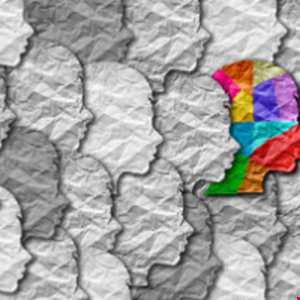- I recommend the Pixel 9 to most people looking to upgrade - especially while it's $250 off
- Google's viral research assistant just got its own app - here's how it can help you
- Sony will give you a free 55-inch 4K TV right now - but this is the last day to qualify
- I've used virtually every Linux distro, but this one has a fresh perspective
- The 7 gadgets I never travel without (and why they make such a big difference)
#InfosecurityEurope: Industry Pros Urged to Advocate For Neuroinclusion

Cybersecurity professionals were today urged to fight for a more neuroinclusive workplace.
Speaking on the final day of Infosecurity Europe, Neurodiversity in Business CEO, Dan Harris, asked the attendees to embrace the concept of “different, not less.”
He argued that information security professionals have more influence than they perhaps appreciate within their organization.
“Given you have the power, what are you going to do with it? What you need to do is use that power for good,” he told attendees.
“You should be asking your organization, ‘do we have a neurodiversity at work program?’ ‘What are we doing to support our neurodiverse talent?’ The reality is that from a commercial perspective, if you aren’t doing this, your competitors are.”
Read more on neurodiversity in cyber: Most Neurodiverse Women in Tech Feel Unsupported: Study.
Harris shared that the inspiration for setting up his charity was his 9-year-old, non-speaking autistic son.
“What we’re trying to do with Neurodiversity in Business is change the working world so that when these children grow up they have a productive life, and society benefits as well,” he explained.
There’s plenty that organizations can do, not just in the hiring process but also making the most of existing neurodiverse talent, which could number as many as one in five employees, he added.
“All the organizations you represent are proactively hiring neurodiverse talent … but we’re at a very low level of maturity,” Harris explained. “The biggest mistake a lot of organizations are making is rushing to hire talent without thinking about the one in five [neurodiverse employees] they already have.”
His call to action for Infosecurity Europe attendees was not only to try and influence the “board table,” but also to discuss neurodiversity more around the “breakfast table,” in order to help change perceptions and embrace the difference.

